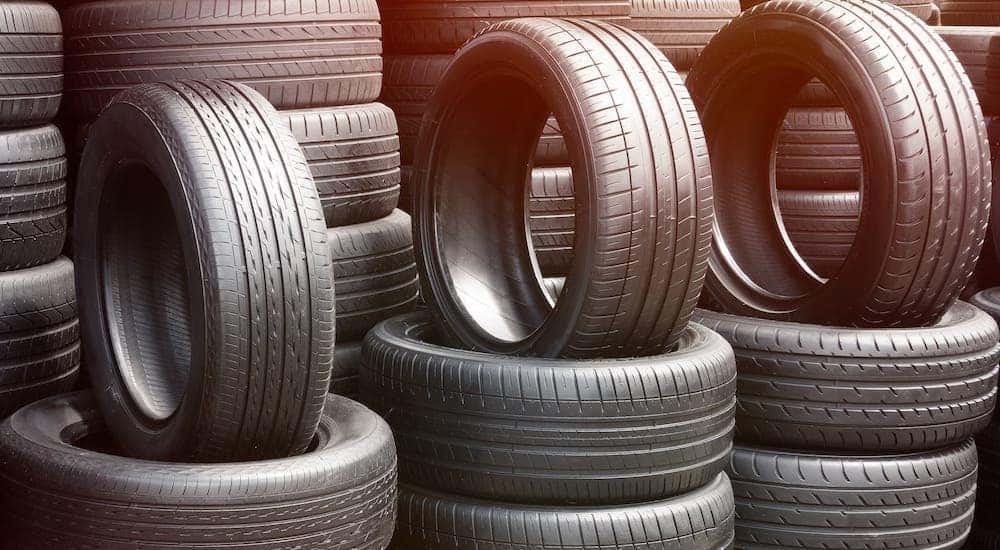Economical Discount Tires Morris IL: Unbeatable Rates, Quality Assured
Economical Discount Tires Morris IL: Unbeatable Rates, Quality Assured
Blog Article
Tire Service: Comprehending Tire Stress Monitoring Equipments
Recognizing Tire Pressure Surveillance Solutions (TPMS) is an important aspect of keeping optimum vehicle efficiency and security on the road. With advancements in vehicle innovation, TPMS has actually come to be a standard function in contemporary cars, giving real-time info on tire pressure degrees.

Significance of TPMS
The importance of Tire Pressure Surveillance Systems (TPMS) hinges on their capability to boost lorry security and performance with real-time tracking of tire stress levels. Keeping the proper tire stress is crucial for making sure optimum handling, braking, and total security of a vehicle. TPMS gives chauffeurs with prompt comments on any type of overinflated or underinflated tires, allowing for timely modifications to be made.
Parts of TPMS
Sensing units are normally situated in the tire shutoff stem or affixed to the wheel setting up, where they determine tire stress and send information to the control module. Some progressed TPMS models likewise present the real tire pressure readings for each tire, supplying vehicle drivers with real-time info to guarantee optimum tire efficiency and safety and security. By monitoring tire pressure continuously, TPMS aids prevent mishaps, minimizes tire wear, and improves fuel performance, making it an essential component for car safety and security and efficiency. mopar tire service specials.
Kinds Of TPMS

On the various other hand, indirect TPMS depends on the automobile's wheel rate sensing units to keep an eye on tire pressure. This system spots underinflation by contrasting the rotational rates of the wheels. Indirect TPMS is less expensive than straight TPMS, as it uses existing sensors within the automobile.
While direct TPMS offers more precise readings, indirect TPMS is simpler in layout and typically calls for much less upkeep. Both systems have their advantages and constraints, and the option between them frequently depends upon aspects such as price, car make, and personal choice. Recognizing the distinctions between these two kinds of TPMS can aid vehicle proprietors make informed choices pertaining to tire upkeep and safety and security.
TPMS Maintenance Tips
Conduct routine checks on the tire pressure degrees and contrast them with the TPMS analyses to guarantee they are constant. Throughout tire rotation or substitute, make certain that the TPMS components are taken care of thoroughly to prevent any kind of prospective damage. If the TPMS advising light illuminates on the control panel, deal with the issue promptly by check my site inspecting the tire pressures and the overall system for any faults.
Advantages of Proper Tire Stress
Maintaining correct tire stress, as highlighted in TPMS Maintenance Tips, is crucial for enjoying the countless advantages related to optimal tire pressure levels. Among the main benefits of preserving the right tire stress is enhanced fuel efficiency. When tires are effectively blown up, there is much less moving resistance, bring about better fuel economic climate. Furthermore, correct tire stress makes certain even tire wear, extending the lifespan of the tires and promoting more secure driving problems. With the best tire stress, cars additionally have better handling and grip, particularly in unfavorable climate condition. This can improve overall driving performance and safety and security for the motorist and passengers. Additionally, preserving optimum tire stress can add to a smoother and more comfy ride by reducing resonances and noise triggered by underinflated tires. In verdict, the benefits of appropriate tire stress go beyond simply tire longevity; they incorporate improved gas performance, improved safety, far better lorry performance, and overall driving convenience.
Conclusion
To conclude, understanding tire stress monitoring systems (TPMS) is critical for maintaining optimal tire pressure and guaranteeing vehicle safety. By identifying the relevance of TPMS, recognizing with its components, recognizing the various types available, adhering to proper upkeep tips, and understanding the benefits of preserving proper tire pressure, chauffeurs can boost their driving experience and extend the life-span of their tires. Correct tire stress is key to risk-free and efficient lorry operation.

Report this page